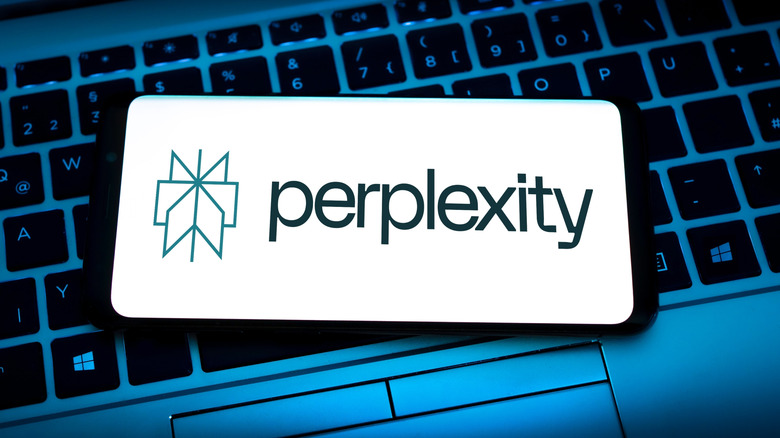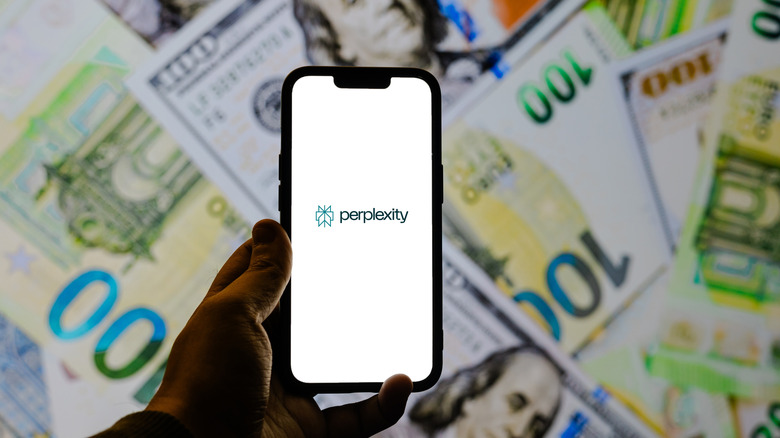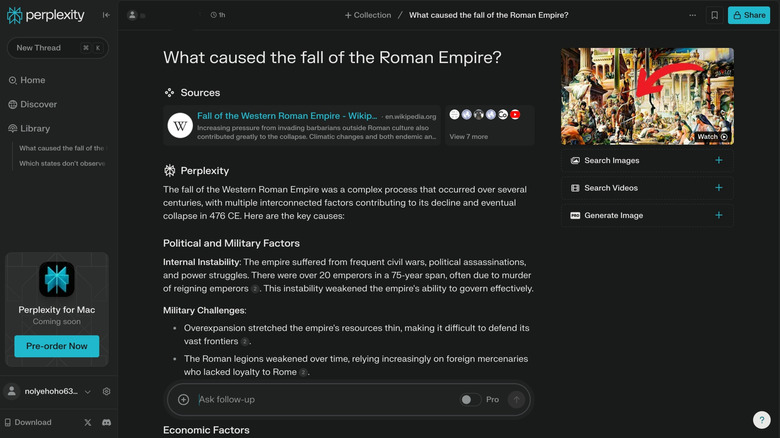What Is The Perplexity Search Engine & Which Private Company Is Behind It?
Given the dominance of the Google search engine, it's easy for smaller competitors to go unnoticed. While alternative search engines exist, many users are perfectly happy remaining within Google's ecosystem. After all, Google Search is the default for Chrome, the world's leading web browser, and comes preinstalled on most Android devices. Opting out of Google's ecosystem requires a concerted effort that many of us aren't willing to undertake unless there's a compelling reason to do so.
That's where Perplexity, also known as Perplexity AI, comes in, presenting an alternative to Google and other traditional search engines. The AI-powered search engine takes a conversational approach to internet searches, leaving behind the algorithm-based, keyword-driven model that has been dominant for so long. Instead of supplying users with long lists of links to websites to troll through in hopes of finding answers, Perplexity gives conversational answers supported by credible sources — a big departure from hallucinating AI chatbots known for providing inaccurate responses or outright lying.
While Perplexity still has a long way to go before it makes a significant dent in the search-engine market, it's already one of the most-used AI tools. And if the company has its way, it will one day replace Google as the search engine of choice for those seeking fast, accurate answers to their search queries.
What company is behind Perplexity?
Four tech industry veterans — Aravind Srinivas, Denis Yarats, Johnny Ho, and Andy Konwinski — came together to found the privately held company Perplexity in 2022. They all brought significant experience in artificial intelligence and machine learning to the table, having spent time working at leading tech companies like OpenAI (the creator of ChatGPT), Meta, and Quora. Srinivas, the company's CEO, was a research scientist at OpenAI, while Yarats, the CTO, worked on AI at Meta. Their frustration with the limitations of traditional search engines was one of the biggest motivating factors driving their decision to create Perplexity.
While the company has only been around for two years, it's already valued at more than $1 billion and has attracted influential investors, including Jeff Bezos, NVIDIA, Institutional Venture Partners (IVP), and NEA. Much of the company's rapid growth can be attributed to the reputation it has built based on users who've had positive experiences with the platform and recommended it to others.
In an interview with Forbes, Srinivas expressed his expectation that, at some point, users will start moving away from Google, and he said, "Just as Google and Facebook transformed how people consume news, a shift away from traditional search engines will happen eventually." While he hopes that will be sooner than later, Srinivas acknowledges that people have a tendency to stick with the status quo.
How does Perplexity work?
Like most search engines, you can access Perplexity using its iOS and Android mobile apps or by visiting its website at perplexity.ai. Perplexity straddles the boundary between AI chatbots and traditional search engines. Enter a query, and Perplexity responds with answers backed by real-time web searches, providing you with timely information. While Perplexity says, "Every answer is backed by citations from trusted news outlets, academic papers, and established blogs," when I asked it, "What caused the fall of the Roman empire?" it listed Wikipedia as its first source. So, like any search engine or AI chatbot, if you're writing something that requires authoritative sources, you'll want to be sure to double-check the responses Perplexity gives you.
Like ChatGPT, Claude, and Gemini, Perplexity uses large language models (LLMs) along with its own proprietary technologies to answer the questions users pose. One thing that stands out when using the Perplexity app and website is the lack of advertisements, a stark difference when compared to the standard search engine experience. There are no sponsored links that appear to be search results, yet in many ways, it maintains the feel of a traditional search engine while delivering a more user-centered experience.
While the AI debate has largely focused on ChatGPT versus Gemini, that will likely change as Perplexity becomes more well-known for its unique approach to web searches. Perplexity is free to use, but if you want to take advantage of all its tools, you'll have to sign up for its Pro plan, which costs $20 for a monthly subscription and $200 for a yearly subscription.


